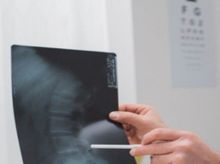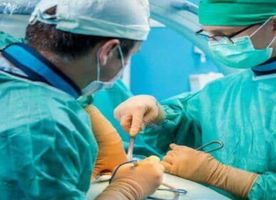Artificial Disc Replacement in South Korea
Search and Compare the Best Clinics and Doctors at the Lowest Prices for Artificial Disc Replacement in South Korea




































































































































No Time?
Tell us what you're looking for and we'll reach out to the top clinics all at once
What does a Artificial Disc Replacement Procedure Involve?
The medical intervention known as Artificial Disc Replacement centers around substituting a damaged or deteriorating disc with an artificially fabricated one. The operation conventionally executes three stages. Initially, an incision is crafted on the patient's neck or back, contingent on the damage disc's location. Following this, the troublesome disc is cautiously removed, and finally, the man-made disc is implanted into the exact position.
How Long Should I Stay in South Korea for a Artificial Disc Replacement Procedure?
Your stay in South Korea for the Artificial Disc Replacement will mostly depend on your surgery needs and recovery speed. Typically, patients need to be in the hospital for about three days after the surgery. That's why planning to spend around 7 to 14 days in South Korea is a good idea. You have to go back for follow-up visits where your surgeon checks your healing and takes out your stitches. Always have good communication with your healthcare provider for a smooth and fast recovery.
What's the Recovery Time for Artificial Disc Replacement Procedures in South Korea?
Rehabilitation time varies, spanning from several weeks to multiple months. You should anticipate regaining work capacity and resuming light tasks within three to four weeks. However, a more extended period is necessary before returning to full-scale activities, including exercise and heavy lifting. Remember, the specific healing timeline will hinge on factors such as your age, health status, and the exact surgery performed.
Well-structured rehabilitation schemes and strict adherence to post-surgery guidelines greatly enhance recovery. In this recovery phase, patients embark on a step-by-step program of increased physical activity. This encompasses designated exercises aimed at fortifying the muscles in the back and preserving spinal flexibility.
What sort of Aftercare is Required for Artificial Disc Replacement Procedures in South Korea?
Post-operative care following a Artificial Disc Replacement in South Korea is crucial for the surgery's success. This aftercare, tailored to each case, could entail particular drugs, physical therapy, and lifestyle modifications such as embracing a nutritious diet and regular exercise. It's equally important to refrain from strenuous tasks and heavy lifting in the weeks post-surgery, facilitating effective healing.
You may be encouraged to stand and walk within the first day following the surgery. Your surgeon will show you how to move properly and how to do exercises at home, such as gentle trunk twists. Make sure you continue to have regular exercise and eat a healthy diet after you recover to maintain your new disc.
What's the Success Rate of Artificial Disc Replacement Procedures in South Korea?
Thanks to skilled surgeons and state-of-the-art technology, the success rate of Artificial Disc Replacement in South Korea is remarkably high. Positivity is frequently indicated by improvements in mobility, pain relief, and return to daily activities. After this surgery, more than 80% of patients successfully return to their usual lifestyles. However, a number of variables, including your general health, age, and any current medical issues, can affect how well the Artificial Disc Replacement goes overall.
Although this process normally yields trustworthy results, individual outcomes may differ. The total success rate can be considerably increased by keeping up with routine doctor's appointments and strictly adhering to the post-operative care plan.
Are there Alternatives to Artificial Disc Replacement Procedures in South Korea?
In South Korea, there are in fact alternatives to Artificial Disc Replacement processes. Alternatives to surgery could be non-surgical procedures including painkillers, nerve block injections, and physical therapy, according to Healthline. Another option for some people may be spinal fusion surgery, which involves joining two or more vertebrae to stop the source of discomfort.
Although spinal fusion and non-surgical procedures can be helpful in some circumstances, they might not be appropriate for everyone. In some cases, the Artificial Disc Replacement is the best option because it is a highly advanced operation that maintains spinal mobility. As always, the best course of action should be chosen after carefully assessing the benefits and dangers in conjunction with a highly qualified medical expert.
This information has been accurately sourced and verified by a medical professional for its accuracy, however, we strongly recommend you to consult with your doctor before pursuing medical procedures overseas.



























